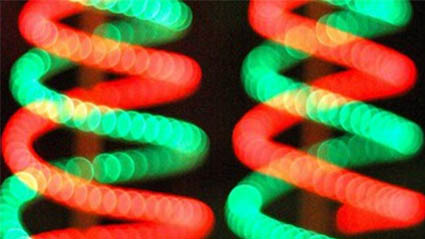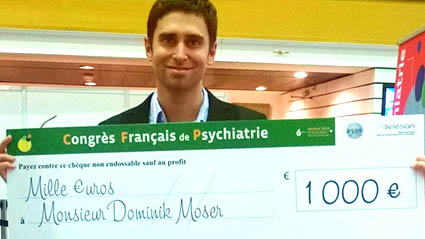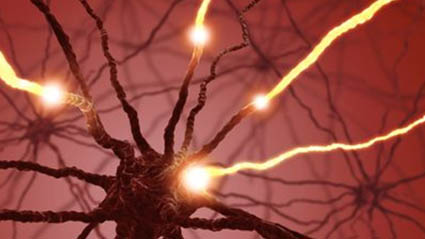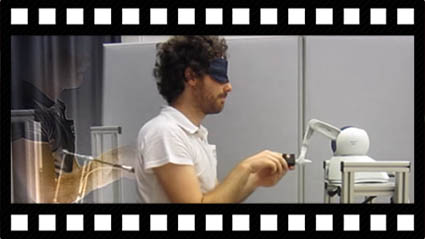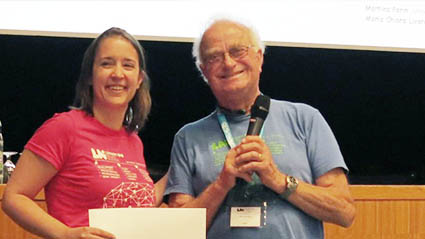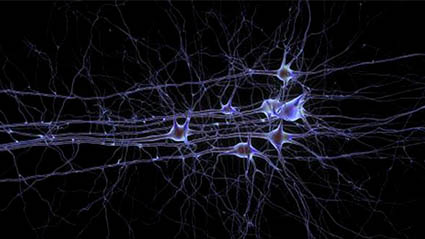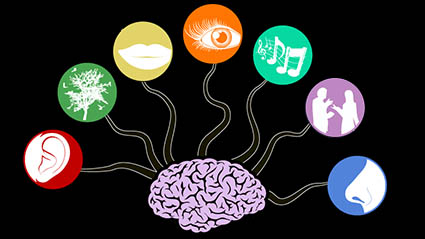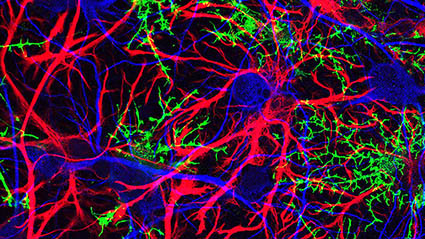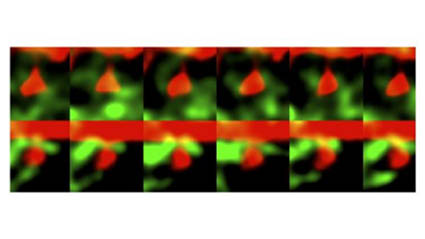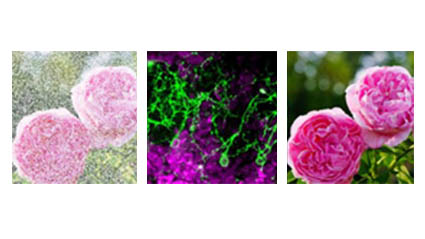NEWS & AWARDS
ALL SYNAPSY'S NEWS
SEARCH SYNAPSY’S NEWS
JUMP TO A SPECIFIC MONTH
Towards a new diagnostic tool for autism and schizophrenia
22 December 2014
Professor Draganski’s team analysed brains from people at risk of developing autism spectrum disorder and schizophrenia. This led to the discovery of a potential biomarker for preclinical use. Autism spectrum...
Read More
A publication by Dominik Moser rewarded during the French Psychiatry Congress
8 December 2014
During the French Psychiatry Congress; a prize goes to Dominik Moser, Ph. D student in Prof Daniel Schechter’s lab, for his work leading to an article published in Stress. On...
Read More
Schizophrenic brains take indirect paths
25 November 2014
Regions with altered (yellow) brain connectivity in schizophrenia patients. Analysis of the structural connectivity in the brains of 16 schizophrenia patients reveals several zones affected by the disease and their...
Read More
A new role for serotonin in psychiatric vulnerability
21 November 2014
Prof Dayer’s team has unveiled the crucial role of a serotonin receptor in the assembly of brain circuits. Serotonin, a neurotransmitter in our brain, is at the root of our...
Read More
Neuroscientists awaken ghosts… hidden in our cortex
7 November 2014
Ghosts only exist in our minds, and we know precisely where to look for them. Patients suffering from neurological or psychiatric conditions have often reported a strange “feeling of a...
Read More
Antioxidants to reduce schizophrenia risk
30 September 2014
In an article published in Neuron, Kim Do and her group reveal that deficits related to schizophrenia can be corrected by protecting a specific group of vulnerable neurons from oxidative...
Read More
Lundbeck Institute Psychiatry Award attributed to a Synapsy study
25 September 2014
The Lundbeck Institute awarded the Psychiatry Prize 2014 to Eva Choong and Prof. Chin B. Eap for their study on a gene that appears to be associated with overweight and...
Read More
How chronic stress tears us apart
19 September 2014
Chronic stress can lead to behavioral problems. Prof Carmen Sandi's team has discovered an important synaptic mechanism: the activation of a cleaving enzyme, leading to these problems. Why is it...
Read More
Best Poster Award to Anne Ruef
8 September 2014
Anne Ruef and Prof. Yves Dunant During the Lemanic Neuroscience Annual Meeting, held in Les Diablerets on August 29-30, 2014, Anne Ruef won the prize for the best poster or...
Read More
Long-term potentiation in silent neurons
1 September 2014
The team led by Anthony Holtmaat, professor at UNIGE and member of the NCCR-Synapsy, was able to demonstrate that the sensory stimulus alone can generate long-term synaptic. Their research on...
Read More
Effectiveness of multisensory teaching methods demonstrated
28 August 2014
The research team lead by Micah Murray, project leader of the NCCR-Synapsy and professor at the University of Lausanne, has shown that your memory abilities can be predicted by how...
Read More
The role of lactate in boosting memory
18 August 2014
Researchers from the Laboratory of Neuroenergetics and Cellular Dynamics (LNDC-EPFL), headed by Prof. Magistretti, have decoded the mechanism by which a glucose derivative activates receptors involved in memorization. Everyone knows...
Read More
An innovative way to reduce traumatic memories
8 August 2014
In a recent meta-analysis, Johannes Gräff (lab), project leader at NCCR-Synapsy and at the Brain Mind Institute (EPFL) and Li-Huei Tsai from the MIT review the existing literature about long-term...
Read More
A breakthrough in understanding brain-learning processes
21 July 2014
Plasticity of the astrocytic processes (green) around a dendritic spine (red) in a post-synaptic receiving neuron structure transferring a sensory impulse. Professor Dominique Muller, co-director of the NCCR-Synapsy, and his...
Read More
Carmen Sandi awarded the Behavioral Brain Research Prize
9 July 2014
Carmen Sandi, project leader on the "Developmental stress" project of Synapsy and head of the Brain Mind Institute (EPFL), received the Behavioral Brain Research Prize last Sunday. On the occasion...
Read More
Martina Franchini awarded the Best Poster Prize
23 June 2014
Martina Franchini, researcher from Marie Schaer and Stephan Eliez’s group, was honored by the Swiss Society of Psychiatry and Psychotherapy of Children and Adolescents during its Annual Congress. Martina Franchini...
Read More
Kim Do and Andrea Volterra new members of the SAMS
17 June 2014
The Senate of the Swiss Academy of Medical Sciences (SAMS) appointed Kim Do and Andrea Volterra, project leaders at the NCCR-Synapsy, as individual members of the Academy. Kim Do is...
Read More
Peter Scheiffele awarded the Robert Bing Prize
6 June 2014
The Swiss Academy of Medical Sciences (SAMS) has awarded Prof. Peter Scheiffele from the Biozentrum of the University of Basel and Prof. Denis Jabaudon of the University of Geneva with...
Read More
Discovery of a neuronal population that filters sensory information
8 May 2014
In the center:"Panache shaped" neurons population sent by olfactory sensory cells. Our five senses collect data for complex perceptual systems in the brain allowing us to make sense of the...
Read More
How a wine taster gets a good nose
25 March 2014
Professor Carleton’s group have just revealed that olfactory training leads to enhanced odorant detection and discrimination. They show that this happens by plasticity at early stages of odour processing in...
Read More
